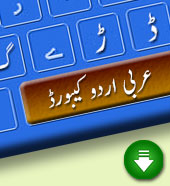Live Makkah
Live Madinah
Urdu Font Download
Latest News:
Padubidri: Fishing boat capsizes; all 7 fishermen on board rescued Alleged atrocity on lawyer: Punjalakatte SI suspended Moral policing at jewellery shop: 4 arrested Bajrang Dal activists try to assault youth, girlfriend in Mangaluru SC to hear Bilkis Bano’s plea against release of 11 convicts on 13 Dec Nusrat Noor: First Muslim Woman to Top Jharkhand Public Service Commission
Latest News:
Padubidri: Fishing boat capsizes; all 7 fishermen on board rescued Alleged atrocity on lawyer: Punjalakatte SI suspended Moral policing at jewellery shop: 4 arrested Bajrang Dal activists try to assault youth, girlfriend in Mangaluru SC to hear Bilkis Bano’s plea against release of 11 convicts on 13 Dec Nusrat Noor: First Muslim Woman to Top Jharkhand Public Service Commission
One Year of Clampdown: Global Rights Bodies, Lawmakers, Activists Tell India to Reverse Abusive Policies in Kashmir

New Delhi, 08 August 2020 [Fik/News Sources]: One strain of opinion suggests that the Indian government’s unilateral abrogation of Jammu & Kashmir’s status on August 5, 2019 and the subsequent lockdown has internationalised the Kashmir issue.
The argument presented by Kashmir observers suggests that the move has dented India’s carefully-crafted image of a responsible regional player after one year of the revocation of Article 370, and the country is now being seen as a revisionist power that has taken a dangerous right-ward turn under the Hindu nationalist Prime Minister Narendra Modi.
Since last August, the United Nations Security Council has met as many as three times, including as recently as August 5, to discuss the Kashmir situation. Even though the meetings were a closed-door affair and without yielding any concrete outcome, the fact that this has happened after many decades on the request of Pakistan with China’s open support makes it significant in the eyes of political observers. Moreover, India also reacting sharply to the meeting lends it importance.
China started the discussion on Kashmir and backed Pakistan’s position at UNSC on Wednesday. India responded by saying it “firmly rejects China’s intervention in its internal matters”. Furthermore, as Pakistan’s Foreign Minister said, the meeting reaffirmed the validity of UN resolutions on Kashmiris’ right to self-determination, India’s representative at UN also retorted by terming it “another attempt by Pakistan fails…almost all countries underlined that J&K was a bilateral issue.”
The first anniversary of the Kashmir move attracted considerable international attention.
Apart from Pakistan, China’s reaction was the sternest. While expressing concern about the Kashmir situation, Wang Wenbin, a spokesperson of the Ministry of Foreign Affairs of the Chinese Government, called it “illegal and invalid”. He reiterated the Chinese position on Kashmir, saying, “It is a historical dispute between Pakistan and India, which should be settled in accordance with the United Nations Charter, relevant Security Council resolutions and bilateral agreements between Pakistan and India”.
The tensions between the two neighbouring countries have escalated in the past few months as Chinese army has entered and occupied several square miles of territory which was under Indian control, triggering a violent faceoff in June that killed at least 20 soldiers of the Indian army. Experts say that Modi’s Kashmir move has led to an unsolicited invitation of the dragon to wade into the Kashmir issue more proactively. In fact, at the UNSC meetings, China came out openly opposing India’s stance and siding with Pakistan on Kashmir.
Though the United States has taken India’s side in the China-India conflict, on the situation in Kashmir, the US Congress’s bi-partisan committee on Foreign Affairs on Wednesday expressed its concern in an open letter to India’s External Affairs Minister, saying the conditions in Kashmir were not normal since the repeal of Article 370. The committee hoped India would take steps to address these concerns.
Meanwhile, United Nations Human Rights Commission slammed India for the on-going human rights abuses in Kashmir. The UN experts issued a damning statement with an appeal to India to urgently restore the human rights of the Kashmiris, including access to high-speed internet. The UN experts have said that restrictions on the internet have marred the response to the coronavirus pandemic in Jammu and Kashmir.
The statement was accompanied by a tweet from Nilis Melzer, UN special rapporteur on torture, exposing how repeated requests in the past four years to the Indian government for a visit to Kashmir had gone unresponsive.
Agnes Callamard, special rapporteur on extra-judicial killing, went a step ahead as she wrote in a tweet that the world community should step up if India failed to address historic and human rights violations in Kashmir.
Other than the UN, prominent human rights organizations, independent lawmakers and political activists also issued statements expressing solidarity with the people of Kashmir on the day that marked the first anniversary of the loss of J&K’s semi-autonomous status and the military lockdown. While terming the restrictions ‘harsh’ and ‘discriminatory’, the Human Rights Watch asked India to “reverse its abusive policies and provide remedies for those whose rights were violated.”
Amnesty International released a video called the ‘Chilling silencing effect on the press in Jammu & Kashmir’, carrying interviews with journalists in Kashmir on the precarious state of media.
The Modi government justified its Kashmir decision with the argument that the region would see unimpeded development. But the situation one year later on the ground betrays the claims as the lockdown has delivered a severe blow to the local economy.
One independent report said that the economy of Jammu and Kashmir saw a loss of over 5 billion USD since August last year. This revelation is sure to invite further international scrutiny.
Prayer Timings
| Fajr | فجر | |
| Dhuhr | الظهر | |
| Asr | أسر | |
| Maghrib | مغرب | |
| Isha | عشا |







